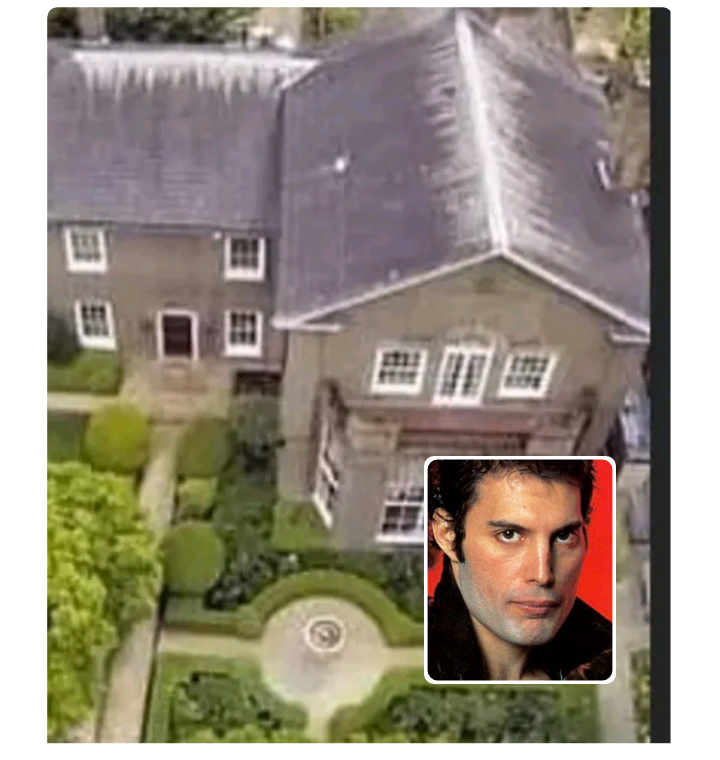“The House That Freddie Built: How Garden Lodge Became Mercury’s Lavish Sanctuary, Artistic Dream, and Final Refuge”
In early 1980, at the height of Queen’s global success, Freddie Mercury quietly purchased a stately Edwardian mansion in Kensington, London—Garden Lodge—for half a million pounds in cash. But for Freddie, it wasn’t just a home; it was a vision realized. Over the next five years, he poured not only wealth but imagination into transforming the house into a sanctuary that reflected his love for elegance, grandeur, and theatricality. Restoring the residence to its Edwardian glory, Mercury revived its original musician’s gallery and added an expansive new dining room. The centerpiece, however, was his bedroom: a luxurious space created by combining three of the mansion’s eight bedrooms into one opulent suite. It wasn’t until 1985 that the house was fully complete—and due to an insurance policy clause, it had to be lived in. That’s when Peter Freestone, Freddie’s longtime personal assistant, moved in, joined by Joe Fanelli during Queen’s Magic Tour. Later, Freddie tested the waters himself, bringing his beloved cats Oscar and Tiffany to see how the house felt. They approved—and so did he. From that moment on, Garden Lodge became Freddie Mercury’s permanent home.
Freddie didn’t just decorate the mansion—he curated it like a masterpiece. He filled it with handmade furniture from Harrods, rare Japanese art and antiques sourced from Tokyo, and surrounded the grounds with carefully manicured gardens maintained by a team of landscapers. It was, in every way, his private palace. Sharing the house with Joe Fanelli, Jim Hutton, and Peter Freestone, Mercury kept the core of his inner world small and intimate, even as countless friends, collaborators, and visitors passed through its gates. Towards the end of his life, Garden Lodge was no longer just a symbol of success—it was a haven where he found peace and privacy amid the chaos of fame and the growing shadow of illness.
Yet in classic Mercury fashion, he approached the achievement with a tinge of irony. “Every person who makes a lot of money has a dream he wants to carry out,” he once said. “I achieved that dream with this wonderful house.” He admitted that the thrill had been in the pursuit itself—the challenge of making the dream a reality—not necessarily in the living. Still, the mansion meant something profound. It wasn’t just property; it was the embodiment of a boy from Zanzibar who had dreamed in Technicolor, worked relentlessly, and built a world worthy of his larger-than-life persona. In the end, Garden Lodge wasn’t just where Freddie Mercury lived—it was where he finally rested, surrounded by beauty, music, and the people and creatures he loved most.
